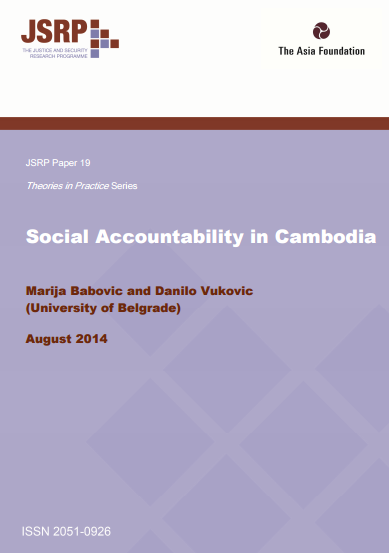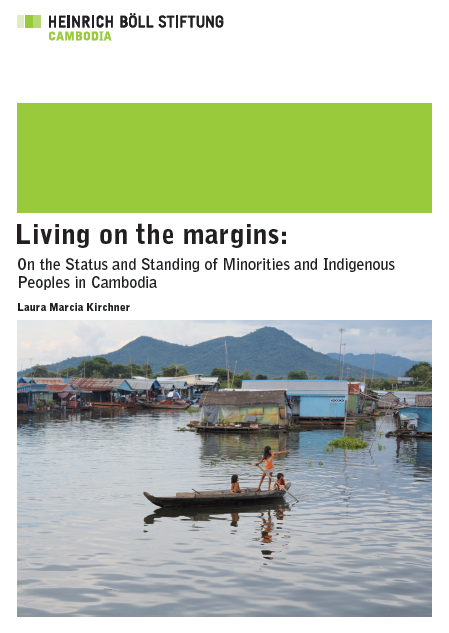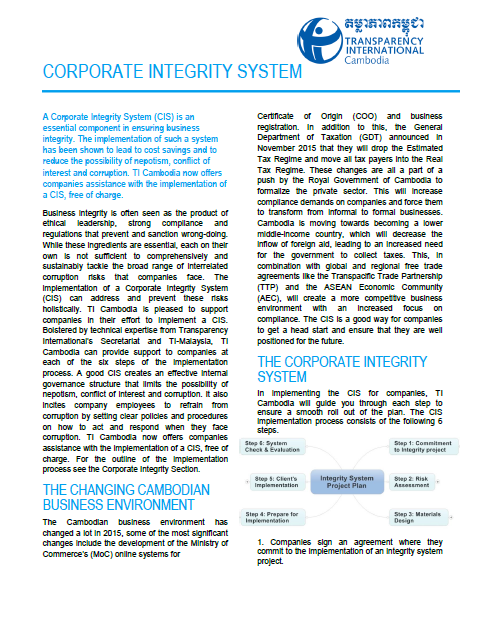Latest Entries
Social Accountability in Cambodia
Publication Year: 2014 / Sources: The Asia FoundationSocial accountability (SA) represents a specific form of more general accountability. As Bovens noted, in the contemporary political and scholarly discourse ‘accountability’ often serves as a conceptual umbrella that covers various distinct concepts, such as transparency, equity, democracy, efficiency, responsiveness, responsibility and integrity. The main focus of this paper is on the Theory of Change (ToC) in the field of promoting social accountability in Cambodia
Download: English | KhmerEvery Person Counts: Promoting the Inclusion of Persons with Disabilities in the Health Sector in Cambodia
Publication Year: 2015 / Sources: Deutsche Gesellschaft für Internationale Zusammenarbeit GmbH (GIZ)Cambodia’s public health system is not well equipped to meet the needs of persons with disabilities, or to diagnose and treat impairments which could become disabling. Barriers encountered by persons with disabilities when accessing care include high direct and indirect costs, the physical inaccessibility of health facilities, communication barriers, and negative attitudes on the part of health care workers.
Download: English | KhmerLiving on the Margins: On the Status and Standing of Minorities and Indigenous Peoples in Cambodia
Publication Year: 2015 / Sources: Heinrich Böll FoundationCambodia’s current population amounts to 15, 135,169 with about 90% of Khmer origin. While it is often presented as one of the region’s most homogeneous country it is, however, home to a multitude of minority groups and Indigenous Peoples. Significantly, there is no agreement on an internationally, legally binding definition for the term “minority”.
Download: English | KhmerThe Culture and Traditional Authority of Indigenous People and the Development Paradigm
Publication Year: -- / Sources: Development and Partnership in Action (DPA)The culture of indigenous peoples in Cambodia is under threat. The environment in which indigenous communities live is changing rapidly and this is having a profound impact within the community itself. Historically, cultural practices and traditional authorities are forces maintaining the collective identity, solidarity and cohesion of indigenous communities and, importantly, protecting communal rights and assets such as land and natural resources.
Download: English | KhmerCooperate Integrity System
Publication Year: 2015 / Sources: Transparency International CambodiaA Corporate Integrity System (CIS) is an essential component in ensuring business integrity. The implementation of such a system has been shown to lead to cost savings and to reduce the possibility of nepotism, conflict of interest and corruption. TI Cambodia now offers companies assistance with the implementation of a CIS, free of charge.
Download: English | Khmer




